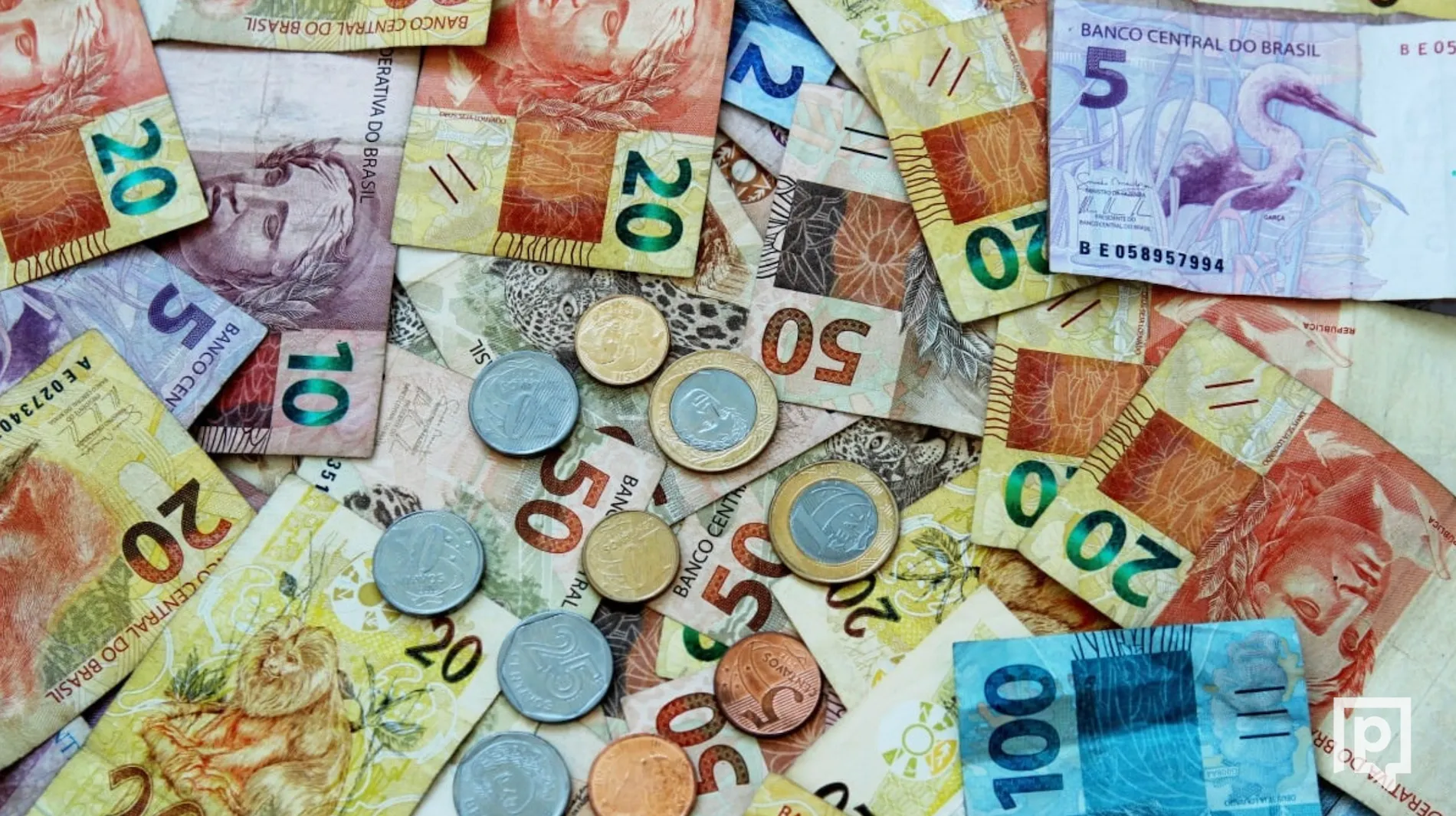Eleven people on a Zoom call share what money means to them: absence, guilt, possibility, fulfillment of dreams, gratitude, burden. It was with these different perspectives - the outcome of such different journeys - that we met as a group for the first time at Confiança no Flow.
Confiança no flow is an experiment that was conceived in October 2023 during the Transformative Philanthropy Community of Practice meeting hosted by Philó | Práticas Filantrópicas, Be the Earth Foundation and Meraki Institute. In practical terms, a group of donors formed a Giving Circle and together raised capital to give away. They then invited social entrepreneurs, activists, and local leaders to decide on the destination of this money, the flow funders.
Each flow funder earnes a portion of the raised capital as a way of acknowledging their time and contribution to the process, and decides how to distribute the rest of the funds. The only condition the Giving Circle has established is that the Flow Funders share their experience with the group, in meetings throughout the year, on how was their decision-making process and what was the destination of the money.
Our experience was inspired by Be the Earth's flow funding circles, which in turn were inspired by the practice of Marion Rockefeller Weber, the philanthropist who coined the term.
The idea behind this process is to overcome the bureaucratic ties of traditional philanthropy and mitigate the verticality of power in its practices. It's also a smarter way of 'allocating resources' because it puts decision-making in the hands of those who know much more about social problems and local realities. Finally, it allows us to humanize all those involved, opening up space for the creation of more horizontal relationships based on trust and transparency.
We’ll share our experiences with this process—first, Camila’s perspective as a member of the Giving Circle and then Caroline’s perspective as a member of the Flow Funding Circle.
The experience of a Giving Circle Member (Camila)
The most sensitive point of flow funding is precisely what it was born to deconstruct: the power inherent in the simple fact of holding capital. Power that most of the time doesn't come from effort, work or merit. It comes from a generational and coercive transmission of wealth - and class and racial privilege - that is not vocally challenged in the world of philanthropy.
But what if we trace the genealogy of this wealth? Will we find labour and merit? Probably not. Behind every concentration of capital is a history of exploitation - of workers, but also of nature and the mostly female work of care - and of ongoing oppression - of people enslaved, robbed and driven from their territories. And it's not at all comfortable to be part of that history.
On my side, out of this discomfort came the responsibility to choose to break out of the automatic cycle of reproducing inequalities and to do something different with the power I had been given. But is it possible or desirable to give up power? It was in the constant company of this question that I joined the group that created Confiança no Flow.
It sounds simple and beautiful: we get together in a circle, we save hours of work on calls for proposals, analysing projects and checking accountability reports, and we manage to get the money where it's needed most. It is and it isn't. To leave the transactional logic is to embrace the reality of the complexity of relationships, of disagreements, of mistakes. But it is in this space that it is worth navigating, learning, changing and starting again.
The experience of a flow funder (Caroline)
When I received the donation that I flowed to Yoni das Pretas members, I was overwhelmed by deep and somewhat complex feelings. As a black woman from a marginalized community, my biography bears the scars of a long historical process marked by coloniality. At the same time, I am heir to the ancestral sciences and technologies that transformed these wounded bodies into spaces of resistance, healing, and creation. So, I received philanthropic support with the awareness that it is more than a gesture of help - it symbolizes an encounter between histories.
Yoni das Pretas was born out of the urgency to re-create a space where black women could take control of their bodies, their health, and their futures amidst the chaos of marginalization and racial and gender violence. Our struggle for autonomy resonates with the voices of our ancestors, who were violently subjugated but not silenced. Our project is a direct response to the coloniality that still dominates power structures, a technology of self-care and collective healing. When philanthropic support came our way, it gave us the opportunity to continue weaving this welcoming network.
But this donation also carries a layer of unspoken history - the legacy of the donors, shaped by colonial economies and their dynamics of exploitation and exclusion. This leads us to consider the role of philanthropy in the context of historical reparations. It can be a powerful tool for redistributing resources and, more importantly, power. For this to happen, the gesture must transcend charity and become an alliance, as Antonio Bispo dos Santos suggests. The commitment must be shared, with the aim of collective transformation.
Coloniality and Historical Reparations
Historical reparations are a moral and political imperative.
Coloniality, as sociologist Aníbal Quijano explains, goes beyond the political and economic domination of the metropolises over the colonies. It is a matrix of power that organises contemporary societies around race, gender and class hierarchies, keeping alive the structures of exclusion created in the colonial period. In Brazil, this is reflected in unequal access to resources, education and opportunities, and in the marginalisation of black, indigenous and other non-white groups.
From this perspective, philanthropy can mitigate the effects of coloniality by redistributing resources more equitably. However, it must recognize the historical debt that economic elites and their lineages owe to marginalized populations.
This is where Antonio Bispo dos Santos' concept of Alliance becomes relevant. For there to be real reparations, donors must be in alliance with recipients and not perpetuate a logic of power in which resources flow from the top down. Alliance implies co-responsibility in addressing the injustices created by coloniality. In this context, philanthropy must be a collective and continuous project of social transformation based on recognizing the colonial past and concrete actions of reparation.
The research 'Peripheries and Philanthropy', published by Iniciativa Pipa, shows that community-based initiatives demonstrate an enormous capacity for organization and resistance even when operating in adverse conditions. These groups are not driven by the traditional logic of philanthropy but by the confluence of knowledge and practices that unite diverse actors around a common project of survival and dignity. This confluence is a force that resists and creates autonomous solutions to marginalization.
Therefore, if philanthropy is to be reinterpreted as historical reparation, it must be based on alliances with affected communities, respecting their autonomous practices. Grassroots initiatives are not passive recipients of aid, but protagonists of social transformation.
Confluence and Alliance in Community of Practices
The concept of Confluence, also proposed by Antonio Bispo dos Santos, describes the coming together of knowledge and ways of struggling around a common goal. More than collaboration, confluence unites multiple voices to create something new - a movement that transcends colonial logics of separation and hierarchy. Unlike charity, confluence emerges from the practices of resistance and solidarity of historically marginalized communities.
The Alliance is central to this process. Instead of unilateral power relations, alliances are based on reciprocity and mutual recognition. They are built on a shared awareness of the violence that coloniality has perpetuated and on the collective solutions that these communities have developed over the centuries.
In the marginalized areas of Brazil, where resources are scarce and access to traditional philanthropy is limited, community organizations are building their support networks. These networks escape formal funding dynamics, operate with few resources, and overburden their members to sustain their activities. Here, pooling knowledge and efforts becomes an essential strategy for overcoming adversity and ensuring autonomy.
These community practices can be traced back to historical strategies of resistance, such as quilombismo, based on oppressed groups uniting to ensure survival and collective well-being. Unlike philanthropy, these networks are seen as forms of resistance, not aid. Their aim is not just to temporarily alleviate marginalization but to create alternative structures of autonomy and dignity.
Rethinking philanthropy as historical reparation means supporting these existing networks without trying to replace them. True social transformation comes from the confluence of knowledge and collective construction among the marginalized.
Crossroads of Legacies
The Giving Circle and Flow Funding experience gave us, the flow funders, something essential: autonomy. It wasn't top-down aid, but recognition of our leadership. As the heir to ancestral technologies, I wasn't relegated to the passive role of grateful recipient. I was empowered to manage the resources received from the Giving Circle and make decisions according to the needs of my people and the urgencies we face as black women. This support allowed us to deepen the practices we have passed on for centuries: those of care, unity, and resistance.
Reflecting on this experience, I realized that just as the body I carry bears witness to the history of my Afro-Pindoramic ancestors, philanthropy reflects the wealth accumulated on the bodies of women like me. This donation is not just a gesture of goodwill; it is part of a process of historical reparation in which the heirs of colonial economies must position themselves alongside those who have inherited the weight of that history.
In this encounter between the inheritors of ancestral technologies and the inheritors of colonial economies, the possibility of re-signification arises. Philanthropy ceases to be a temporary relief and becomes an ongoing commitment to reparation. The alliance built here must be horizontal, based on trust and mutual respect. We are not passive recipients of aid, but agents of our transformation. The Yoni das Pretas, sustained by the confluence of ancestral knowledge and the search for autonomy, is a living expression of this struggle.
Finally, the words of Conceição Evaristo echo: "My poetry is not to lull the plantation house." Like this poetry, our project is meant to awaken, shake consciences, and promote real change. Just as philanthropy must be disruptive and critical, it must break with the colonial logic of control and dependency. Only by acknowledging the historical depth of what is at stake can we create a path toward true reparation, where ancestral technologies and contemporary economies meet to build a future of justice.



.webp)
.webp)






.webp)
.webp)
.webp)














.webp)


